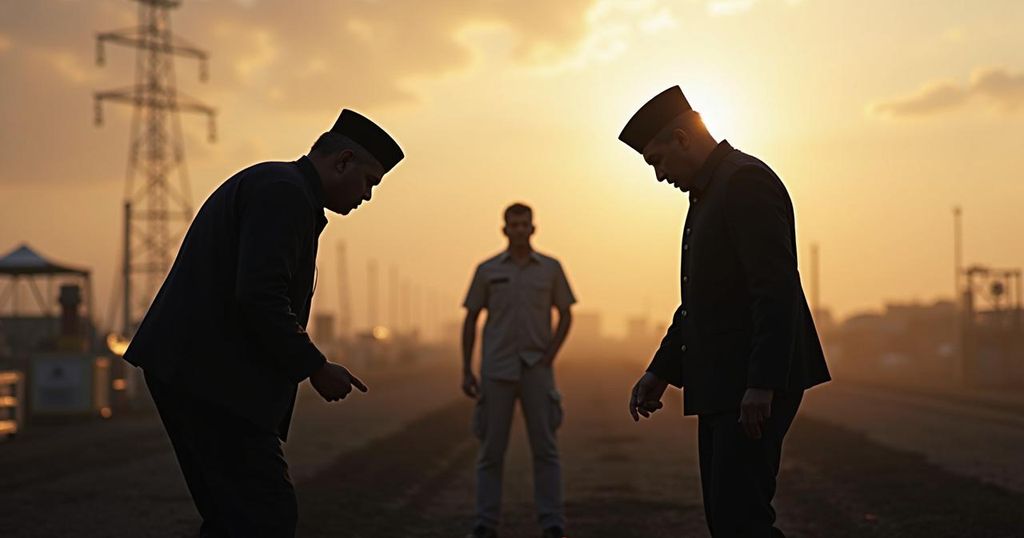Indonesian President Joko Widodo condemned the assassination of Hamas leader Ismail Haniyeh in Tehran as an “act of violence and murder” which occurred within Iran’s territory. Israel is suspected to be involved, while Japan calls for diplomatic efforts to deescalate tensions following the incident. The broader context includes ongoing violence in Gaza, leading to significant Palestinian casualties and international scrutiny towards Israel’s military actions.
Indonesian President Joko Widodo, commonly referred to as Jokowi, has expressed his strong condemnation of the assassination of Hamas leader Ismail Haniyeh in Tehran, labeling the act as an “act of violence and murder.” He emphasized the gravity of the situation by stating, “It is an act of violence and murder that cannot be tolerated, and it occurred within Iran’s sovereign territory,” as reported by the Jakarta Globe. The announcement of Haniyeh’s assassination came from Hamas and Iran, following an Israeli airstrike targeting his residence in Tehran. This airstrike occurred less than 24 hours after Haniyeh attended the inauguration of Iranian President Masoud Pezeshkian. While Israeli officials have not officially acknowledged the assassination, Prime Minister Benjamin Netanyahu has made comments suggesting Israel’s involvement. President Jokowi asserted that such actions within Iran’s territory are wholly “unacceptable,” and he urged global condemnation against violence of this nature, saying, “I believe everyone, including Indonesia, condemns such violence and murder.” In related international responses, Japan has voiced concerns regarding the escalating tensions in the Middle East post-assassination. Chief Cabinet Secretary Yoshimasa Hayashi noted the importance of avoiding retaliatory actions to deescalate the situation. He indicated that Japan is still verifying facts but is committed to pursuing diplomatic efforts to prevent further deterioration of the circumstances. Furthermore, Israel’s ongoing military offensive in Gaza, particularly after an Oct. 7 attack by Hamas, has received widespread international condemnation. Amidst these hostilities, local health authorities report that at least 39,445 Palestinians have lost their lives, predominantly women and children, with over 91,000 others reported injured. As the war continues, Gaza finds itself in dire straits, with extensive destruction and a crippling blockade restricting access to essential resources such as food, clean water, and medicine. The International Court of Justice has implicated Israel in allegations of genocide and ordered the cessation of its military operations, particularly in the southern city of Rafah, which had become a refuge for over one million Palestinians prior to the invasion in early May.
The assassination of Hamas leader Ismail Haniyeh in Tehran has intensified discussions surrounding violence in the Middle East, particularly in the context of Israel’s military operations against Palestinian territories. The incident highlights not only the geopolitical complexities of the region but also the ongoing humanitarian crisis that has arisen from military confrontations. The responses from global leaders, including those from Indonesia and Japan, reflect a broader concern regarding escalating violence and the need for diplomatic interventions to restore peace and stability.
In summary, the assassination of Hamas leader Ismail Haniyeh has drawn significant international condemnation, particularly from Indonesian President Joko Widodo, who denounced the act as violence and murder. The incident underscores the fragile state of affairs in the Middle East, with Japan also calling for de-escalation and diplomatic actions to prevent further violence. The ongoing Israeli military offensive has exacerbated humanitarian crises, prompting concerns over violations of human rights and international law.
Original Source: www.aa.com.tr







